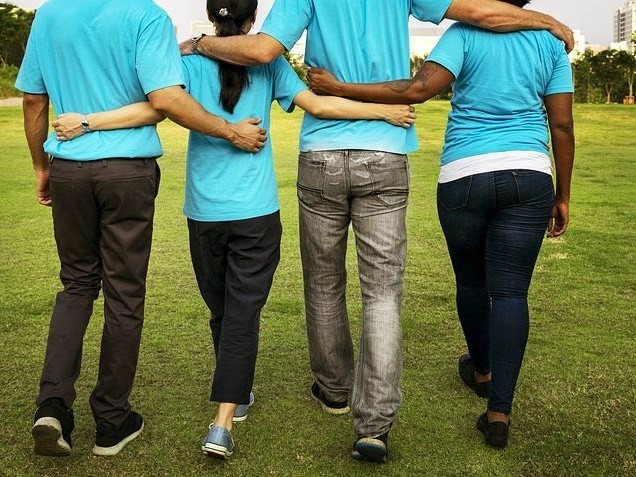Together Everyone Achieves More

Teamwork is a term often spoken about but not always demonstrated. Yet no one can succeed by themselves. Together everyone achieves more. Here are our views on what enables a group of people to become a team.
Having a shared, common objective is critical. Objectives are common yet how often are they even shared and let alone understood? Without a unifying vision of what is to be achieved it is unlikely that everyone will be working efficiently and effectively to achieve the same goal.
Leadership is necessary too. Setting direction may be the role of the official leader but leadership can be shared depending on the tasks that need to be tackled. If leadership is delegated to others, remember that the bucks stops with the ultimate person in charge. In summary you don’t have to be a manager to be a good leader, but you do need to be a leader to be a good manager.
Clear roles and accountabilities are also very important. In small teams it may be necessary to be flexible and multi-task. However, accountabilities need to be clear otherwise confusion and/or lack of accountability can lead to inefficiency and demotivation. Healthy competition can help in a team but avoid creating a culture that is uber-competitive. In high performing teams, everyone achieves together.
Diversity and inclusion is essential. However, this goes way beyond the protected characteristics such as gender, age, ethnicity, sexuality etc. Diversity of thought is to be welcomed and embraced. If you’re not convinced then read our blog on the dangers of group think and how to avoid it. To encourage diversity of thought the culture also needs to be inclusive for medium-to-long serving team members as well as new starters.
Communication skills are necessary throughout the team. Upwards, downwards and across teams – horizontal as well as vertical. This will help prevent silo thinking and improve problem solving. Communication is necessary to inform as well as to consult and direct. Make sure your communications, whether face-to-face, telephone, email or messaging, are clear and concise. Be careful not to over communicate though, as this can be counter-productive.
Caring for each other will help teams mature and become sustainable. Whether it’s just one of those days or maybe something far more significant, everyone needs support at one time or another. Being with a group of people that care, share and nurture each other is a measure of teamwork. Work is not always just about getting the job done. How the job is done is important too. Feeling part of a team means creating a sense of belonging, an emotional attachment that can last a lifetime.
Training and development, including coaching, is a must too. Most people are looking to master their craft, to become the best version of themselves. On-the-job learning and coaching are just as valuable as specialised training courses. Investing in people is important to give people the skills and knowledge they need to succeed. Learning is a huge satisfier for individuals. Learning in teams helps to build relationships and interdependency.
Celebrating success cannot be overlooked. This doesn’t have to be about money, a bottle of prosecco or chocolates. These are the sorts of things we call extrinsic motivators. Very often it is the more intrinsic motivators that matter e.g. celebrating as a team to share mutual success, saying thank you, well done etc etc. Recognising contributions that achieve team goals really helps to create a team identity.
Finally, consider how your team is viewed externally. For example, teams that are perceived as being elitist are often resented by others. This can then become damaging in the long term. An effective team pays attention to how it manages its external relationships as well as how it operates internally. They see and understand the bigger picture.
So our message is clear – Together Everyone Achieves More. If you are still not convinced then please take a look at this short video:
More more information on the roles that people can play in teams see:
Paul Beesley
Director and Senior Consultant, Beyond Theory

